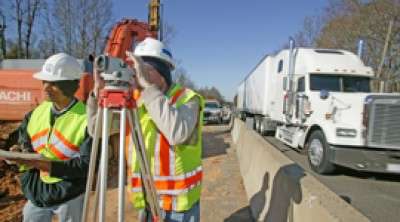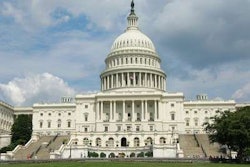
Legislation to create hundreds of thousands of new jobs passed the U.S. House of Representatives Thursday, March 4. The Hiring Incentives to Restore Employment (HIRE) Act will use tax credits to help small businesses create jobs. It also includes an extension of the Highway Trust Fund that will keep workers on the job at thousands of construction sites across the nation while work on a long-term transportation bill continues.
“A year ago our economy was shrinking at a rate of more than 6 percent,” says U.S. Rep. Jim Oberstar (D-Minn). “Today it is growing by 6 percent. Unfortunately, that growth isn’t happening fast enough for many families. This bill will ensure that we continue to create new jobs and help our economy recover sooner, rather than later.”
The HIRE Act includes a payroll tax holiday for businesses that hire unemployed workers to create some 300,000 jobs, and an income tax credit of $1,000 for businesses that retain these employees. It also includes tax cuts to help small businesses invest, expand and hire more workers, and provisions to make it easier for states to take up infrastructure projects such as school construction and energy retrofitting.
“This legislation is fully paid for and does not add to the federal budget deficit,” said Oberstar. “We are following House rules that require all new spending to be paid for by either cutting other programs or by finding new revenue sources.”
The HIRE Act also allows states to continue working on federally-funded road, bridge and transit projects through the end of this year. The current surface transportation authorization act – the Safe, Accountable, Flexible, Efficient, Transportation Equity Act: A Legacy for Users (SAFETEA-LU) – was due to expire Sept. 30, 2009, but has been kept alive by a series of extensions while Congress considers a replacement authorization bill.
The Senate on Tuesday, March 2, voted 78-19 to pass a $10 billion measure to fund highway projects and extend unemployment benefits through the end of March after Republican Sen. Jim Bunning of Kentucky agreed to end his filibuster demanding a way to pay for it first. The original short-term extension of unemployment benefits needed unanimous consent to pass because Democrats labeled it an emergency spending measure, but Bunning had rejected the motion for unanimous consent.
The expiration of funding at midnight, Sun. Feb. 28, forced two-day employee layoffs at the U.S. Department of Transportation, including the Federal Motor Carrier Safety Administration, Federal Highway Administration, National Highway Traffic Safety Administration and the Research and Innovative Technology Administration.
Oberstar, who chairs the House Committee on Transportation and Infrastructure, is moving ahead with work on a new transportation funding bill to fund all of the nation’s road, bridge and public transportation projects for the next six years.
“We now have a firm commitment from the Senate to move ahead with the Surface Transportation Authorization Act,” Oberstar says. “Investing in roads, bridges and public transportation will create millions of new jobs and improve productivity in our economy. Traffic congestion is costing Americans $87 billion a year in lost time and wasted fuel. I call that a congestion tax that we all pay in the form of more expensive goods and services.”











